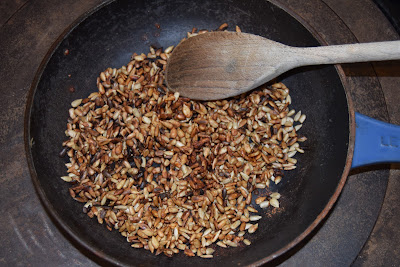76 / A Recommended Book
A
short while ago I was sent a copy of a remarkable book, Love, Medicine and Miracles, Lessons learned about self – healing from
a surgeon’s experience with exceptional patients. The surgeon, Bernie Siegel, M.D., practices surgery in New
Haven and teaches at Yale University.
He’s been in practice for over thirty years. I spell out these solid credentials because among the many
shrewd insights into the lives and treatment of cancer sufferers the book makes incredible claims.
In its Introduction the book is emphatic, “Everyone can be an exceptional patient, and
the best time to start is before getting sick. Many people don’t make full use of their life force until
near fatal illness goads them into a ‘change of mind’. But it doesn’t have to
be a last minute awakening. The
mind’s power is available to us all the time, and it has more room to maneuver
before disaster threatens. This
process doesn’t require allegiance to any particular religious belief or
psychological system.”
Dr.Siegel explains that the book is “not merely advice about what to do; that is
plentiful. Rather it is a guide to the part of yourself that can choose your
own best advice and then muster the will to follow it. I hope to reach beyond your rational
mind, for miracles don’t come from cold intellect. They come from finding your authentic self and following
what you feel is your own true course in life.”
First
Dr. Siegel describes his own journey; the realization that medicine was misguidedly studying its failures, those who died, when it should have been paying
attention to the exceptional patient who gets well unexpectedly; the
‘miraculous’ recovery. He started
a therapy group called Exceptional Cancer Patients (ECaP) which revolutionised
his attitude to patients. He
became a ‘privileged listener’ learning from his patients as much as helping them;
ceasing to be merely a ‘mechanic’ fixing broken bodies and learning how to view
his patients as individual people; taking a holistic rather than a statistical
view.
Dr.
Siegel talks of the crucial relationship of trust between physician and
patient. Only the patient knows how they really feel and their full history. A
medical practitioner needs this information. If an ill person does not fully
believe in the doctor or the treatment the result can be a conscious or subconscious
resistance or rejection of it. The
patient may not get well. A doctor-patient relationship of collaboration can
result in enormous benefit – for physician and patient alike.
Dr
Siegel argues that a patient is as responsible as the doctor for their own well
being. He dismisses the terms ‘living’ and ‘dying’ and ‘terminal’. A person is
either alive or dead and he asserts the critical importance of a sense of
humour. If you are alive you can
laugh. He draws attention to the placebo
effect to illustrate the role the mind can demonstrably play in influencing
the effectiveness of a prescribed treatment. Taking this a step further he explains how he uses “two
major tools to change the body – emotions and imagery. These are the two ways we can get our
minds and bodies to communicate with each other. Our emotions and words let the body know what we expect of
it, and by visualizing certain changes we can help the body bring them about.” He argues that “the fundamental
problem most patients face is an inability to love themselves, having been
unloved by others during some crucial part of their lives. This period is almost always
childhood….” There is
nothing wrong with self-love and self-respect, he says. The lack of these is
the problem leading perversely to many patients welcoming their diagnosis of
cancer because they can become the centre of caring attention. “Since physical illness usually brings
sympathy from friends and relatives, it can be a way of gaining love, or
nurturing it. It can become a
patient’s only way of relating to the world, the only control one has over
life.” It can bring direction, a
point to life.
This book merits reading and dipping into again and again. Much food for thought. I recommend it.
 |
| © Máille Brady Bates, Full Moon over Ventry Bay |

